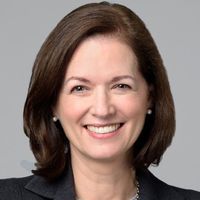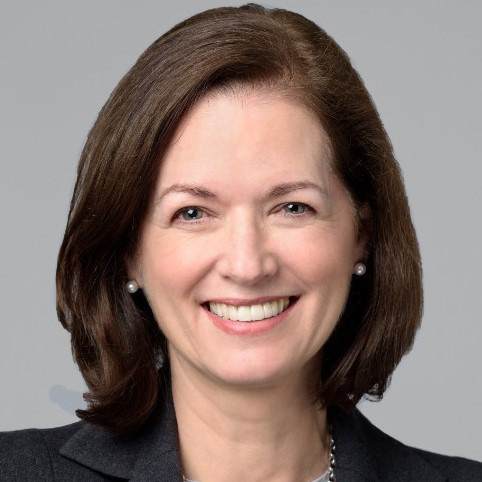How Young People Can Own Their Financial Future Authentically
It starts with trusting the process. The good news is Gen Zers and younger Millennials are on their way, a new study says.


Profit and prosper with the best of Kiplinger's advice on investing, taxes, retirement, personal finance and much more. Delivered daily. Enter your email in the box and click Sign Me Up.
You are now subscribed
Your newsletter sign-up was successful
Want to add more newsletters?

Delivered daily
Kiplinger Today
Profit and prosper with the best of Kiplinger's advice on investing, taxes, retirement, personal finance and much more delivered daily. Smart money moves start here.

Sent five days a week
Kiplinger A Step Ahead
Get practical help to make better financial decisions in your everyday life, from spending to savings on top deals.

Delivered daily
Kiplinger Closing Bell
Get today's biggest financial and investing headlines delivered to your inbox every day the U.S. stock market is open.

Sent twice a week
Kiplinger Adviser Intel
Financial pros across the country share best practices and fresh tactics to preserve and grow your wealth.

Delivered weekly
Kiplinger Tax Tips
Trim your federal and state tax bills with practical tax-planning and tax-cutting strategies.

Sent twice a week
Kiplinger Retirement Tips
Your twice-a-week guide to planning and enjoying a financially secure and richly rewarding retirement

Sent bimonthly.
Kiplinger Adviser Angle
Insights for advisers, wealth managers and other financial professionals.

Sent twice a week
Kiplinger Investing Weekly
Your twice-a-week roundup of promising stocks, funds, companies and industries you should consider, ones you should avoid, and why.

Sent weekly for six weeks
Kiplinger Invest for Retirement
Your step-by-step six-part series on how to invest for retirement, from devising a successful strategy to exactly which investments to choose.
“Don’t trust anyone over 30” used to be the mantra of the Baby Boom generation back when they were, well, under 30.
Today those under 30 actually do trust – and in fact they have the highest levels of trust in financial services of any generation, according to a survey we at CFA Institute recently released. That’s promising news for Gen Zers and younger Millennials as they set out to make prudent financial decisions over the course of their lifetimes.
I’m heartened by what these levels of trust mean for younger investors, and let me explain why: Gen Zers and younger Millennials, more than any other generational cohort to date, need to “own” their financial futures. From paying for college to buying a home to funding retirement, they are largely on their own, and higher levels of trust in financial services will help them to make informed, unbiased opinions as they relate to these life-changing decisions.
From just $107.88 $24.99 for Kiplinger Personal Finance
Become a smarter, better informed investor. Subscribe from just $107.88 $24.99, plus get up to 4 Special Issues

Sign up for Kiplinger’s Free Newsletters
Profit and prosper with the best of expert advice on investing, taxes, retirement, personal finance and more - straight to your e-mail.
Profit and prosper with the best of expert advice - straight to your e-mail.
When I began my career transition to finance, after starting in marketing, I was determined to seek further education in order to excel. This led me to finding available tools, credentials and mentors. I see many of these same actions being mirrored by young investors looking to forge their own path right now.
But how can young investors continue to grow their investments in a way that also continues to grow their trust? Here are three key ways young investors can start building a portfolio that works for them.
Invest in Their Own Principles
This generation wants to make an impact, and many choose investments based on their own personal values. Environmental, social and governance (ESG) considerations have risen exponentially among Gen Z investors – and this has increased trust as well.
Many Gen Zers seek to invest in companies whose principles and sense of purpose resonate with them. This stands in contrast to a returns-first approach. And when they feel like they can invest their money alongside their values, there’s a correlation with rising trust in the investment process. Not to mention these considerations are often material to the performance of individual companies.
Investor Advice: Young investors should distinguish their key beliefs and formalize them. By listing out priorities and standards, they can then implement them strategically within an investment strategy. Doing research into individual companies, or finding funds that set those standards for them, can help to build an investment mix that is correlated to their own value system and in turn, ensure those values are reflected in our financial system.
Embrace Technology
We also found technology to be a “trust multiplier.” Technology enhances trust because it offers more transparency, simplifies access to markets and products, and can better align product offerings with investors’ needs through personalization. Those in their 20s are digital natives, so they often utilize new tools to find financial information and to gain a better understanding of their investments. And this familiarity leads to higher levels of trust for them.
Savings and investing apps are fundamentally changing how Gen Zers and Millennials run their financial lives. While sometimes assailed for the “gamification” of investing, these tools, when used properly, bring a host of advantages. We found that those under 35 are nearly twice as likely as the over 65s to have a retail trading account (68% versus 37%, respectively).
Continuing to embrace this curiosity in finance will give them more access and an increased understanding of their finances. But, to make the best use of technology, they must take the time to understand what tools are the best and most trustworthy.
Investor Advice: New apps and tools continue to make it easier than ever to gain access to markets, especially for those just starting their investing journey. Young investors and those looking to get their start in investing apps should search online for reviews on the best apps available for their specific investing goals, be it individual stocks or larger portfolio investing, to ensure that they’re getting the best advice when making their investment decisions.
Work With Those They Can Trust
Despite increased use of technology fostering trust, our study found there is still the need for human advice. Even the most technologically savvy young investor needs the advice of a well-trained, ethical professional at times.
Many young investors already work with an adviser, but they shouldn’t settle with the first one if they don’t seem to take into account what they care about. They should look to get reassurance that they’re following the beliefs they formalized, and investing with their best interest in mind.
Investor Advice: Young investors should take the time finding the right adviser to work with. This should include being prepared with questions about their fiduciary status, fee structure, and investment strategies, just to name a few. And as mentioned, ensuring the advisers’ values are aligned with their personal investment philosophies is a critical step to a thriving long-term partnership.
I applaud Gen Z and Millennials, and hope they continue to embrace the tools and technology that can make them trusting, informed and passionate investors for life.
Profit and prosper with the best of Kiplinger's advice on investing, taxes, retirement, personal finance and much more. Delivered daily. Enter your email in the box and click Sign Me Up.

Marg Franklin leads CFA Institute and its more than 190,000 members worldwide in promoting the highest standards of education, ethics, and professional excellence in the investment profession. Franklin has built her career over the course of more than 25 years in the investment and wealth management industries, in both institutional and private wealth. She is a CFA charterholder and a member of CFA Society Toronto.
-
 How Much It Costs to Host a Super Bowl Party in 2026
How Much It Costs to Host a Super Bowl Party in 2026Hosting a Super Bowl party in 2026 could cost you. Here's a breakdown of food, drink and entertainment costs — plus ways to save.
-
 3 Reasons to Use a 5-Year CD As You Approach Retirement
3 Reasons to Use a 5-Year CD As You Approach RetirementA five-year CD can help you reach other milestones as you approach retirement.
-
 Your Adult Kids Are Doing Fine. Is It Time To Spend Some of Their Inheritance?
Your Adult Kids Are Doing Fine. Is It Time To Spend Some of Their Inheritance?If your kids are successful, do they need an inheritance? Ask yourself these four questions before passing down another dollar.
-
 The 4 Estate Planning Documents Every High-Net-Worth Family Needs (Not Just a Will)
The 4 Estate Planning Documents Every High-Net-Worth Family Needs (Not Just a Will)The key to successful estate planning for HNW families isn't just drafting these four documents, but ensuring they're current and immediately accessible.
-
 Love and Legacy: What Couples Rarely Talk About (But Should)
Love and Legacy: What Couples Rarely Talk About (But Should)Couples who talk openly about finances, including estate planning, are more likely to head into retirement joyfully. How can you get the conversation going?
-
 How to Get the Fair Value for Your Shares When You Are in the Minority Vote on a Sale of Substantially All Corporate Assets
How to Get the Fair Value for Your Shares When You Are in the Minority Vote on a Sale of Substantially All Corporate AssetsWhen a sale of substantially all corporate assets is approved by majority vote, shareholders on the losing side of the vote should understand their rights.
-
 How to Add a Pet Trust to Your Estate Plan: Don't Leave Your Best Friend to Chance
How to Add a Pet Trust to Your Estate Plan: Don't Leave Your Best Friend to ChanceAdding a pet trust to your estate plan can ensure your pets are properly looked after when you're no longer able to care for them. This is how to go about it.
-
 Want to Avoid Leaving Chaos in Your Wake? Don't Leave Behind an Outdated Estate Plan
Want to Avoid Leaving Chaos in Your Wake? Don't Leave Behind an Outdated Estate PlanAn outdated or incomplete estate plan could cause confusion for those handling your affairs at a difficult time. This guide highlights what to update and when.
-
 I'm a Financial Adviser: This Is Why I Became an Advocate for Fee-Only Financial Advice
I'm a Financial Adviser: This Is Why I Became an Advocate for Fee-Only Financial AdviceCan financial advisers who earn commissions on product sales give clients the best advice? For one professional, changing track was the clear choice.
-
 I Met With 100-Plus Advisers to Develop This Road Map for Adopting AI
I Met With 100-Plus Advisers to Develop This Road Map for Adopting AIFor financial advisers eager to embrace AI but unsure where to start, this road map will help you integrate the right tools and safeguards into your work.
-
 The Referral Revolution: How to Grow Your Business With Trust
The Referral Revolution: How to Grow Your Business With TrustYou can attract ideal clients by focusing on value and leveraging your current relationships to create a referral-based practice.